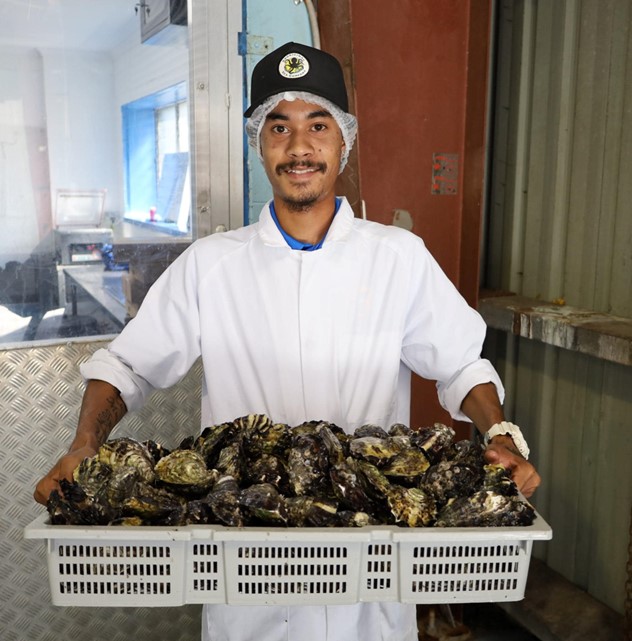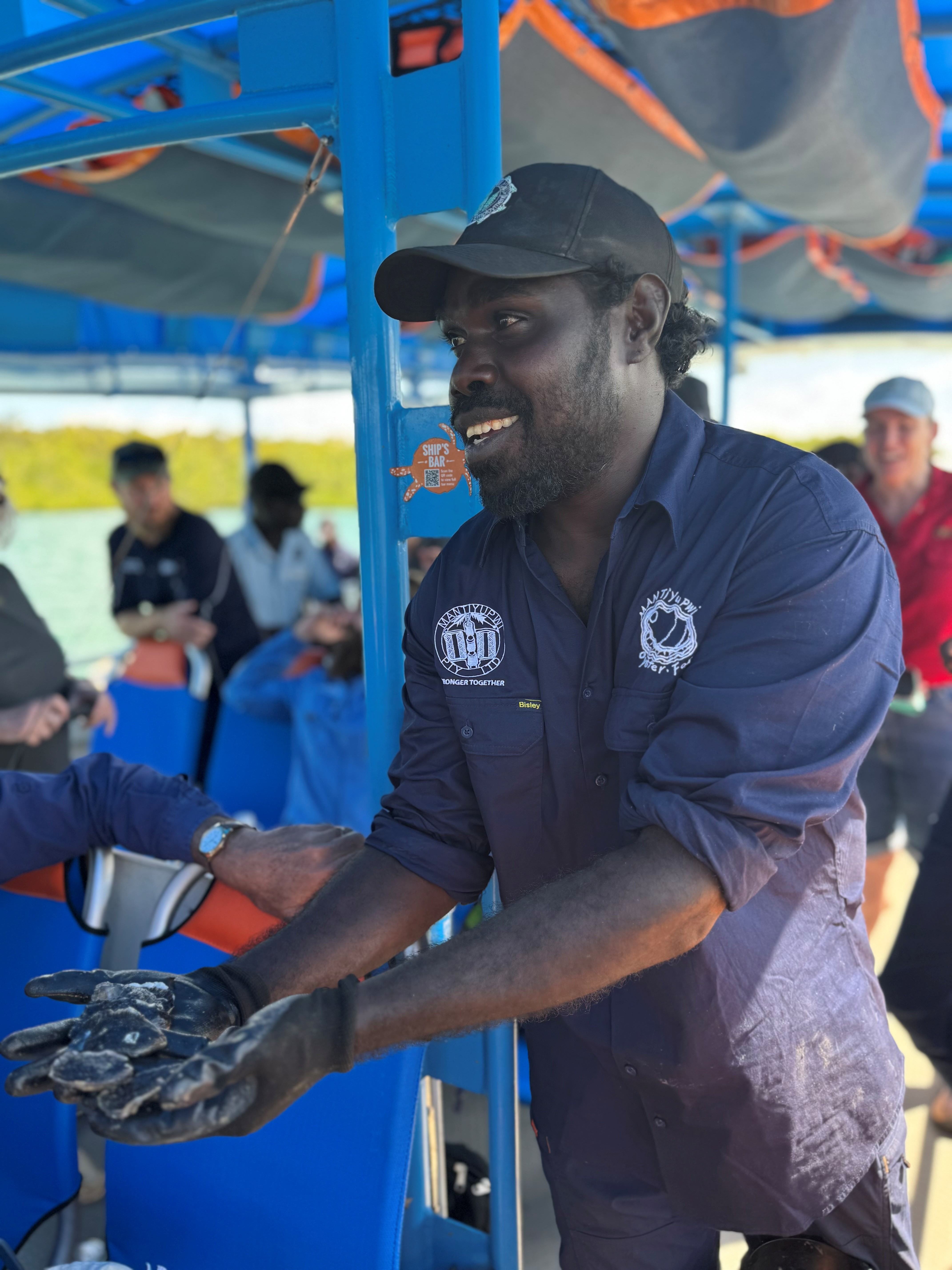At the Developing Northern Australia Conference held in Cairns last week a powerful presentation was delivered showcasing the work the Aboriginal Sea Company (ASC) is doing to create real change across the Territory.
The message was clear: Aboriginal people are custodians and more of sea country; they are building economies, owning supply chains, and shaping the future of the seafood industry from the coastline in.
ASC was born out of the landmark Blue Mud Bay decision; a legal ruling that recognised Aboriginal ownership over 84 per cent of the Northern Territory coastline. But as Chair Calvin Deveraux reminds us: "Blue Mud Bay gave Aboriginal people the rights to control their waters. That was a huge step forward. But rights on paper aren't enough. Our job now is to turn those rights into real jobs, real businesses, and real outcomes that make a positive impact on people and their everyday lives."
And that's what ASC is doing.

The company exists to put those legal rights into practice. It holds commercial mud crab, barramundi, and coastal line fishing licences and makes them available for community use; but more importantly, it backs that access with practical support: vessels, gear, transport, training, and market connections.
"It is about making it possible for people to fish their own waters in a way that works for them, not just ticking boxes," Mr Deveraux said.
Stories like that of Sean Fitzpatrick, a young fisherman operating near Borroloola, highlight what leadership on sea country really means; not formal titles, but the quiet determination to build something real on Country.
"Leadership on sea country means community taking control," ASC says. "It's about supporting the people who already have the drive and giving them the tools to take the next step."
ASC's approach is grounded in cultural responsiveness. There's no one-size-fits-all model.
"You can't sit in an office in Darwin and come up with a plan that works for Borroloola or Wadeye. It doesn't work like that," said Interim CEO Jared Copley. "Real solutions have to be shaped by the people who live there, who know the country, the challenges, and the community."
The company's long-term vision includes community-led seafood shops like the one soon to open in Wadeye, and ownership of the Darwin Fish Market; both critical steps in ensuring Indigenous communities not only catch the fish, but control the value chain.
"If community does the hard work of catching the fish, they should also be the ones making decisions about how it is sold and where the value goes."

Deputy Chair Andrew Bush shared the bigger picture: "We want to see Aboriginal people owning boats, running seafood businesses, training young people, and making the decisions. We're working towards a future where kids are growing up seeing their uncles, aunties and cousins running boats and businesses and knowing they can do it too."
This is economic development rooted in culture. It's not about fitting into someone else's system; it's about building one that reflects Aboriginal leadership, values, and vision.
